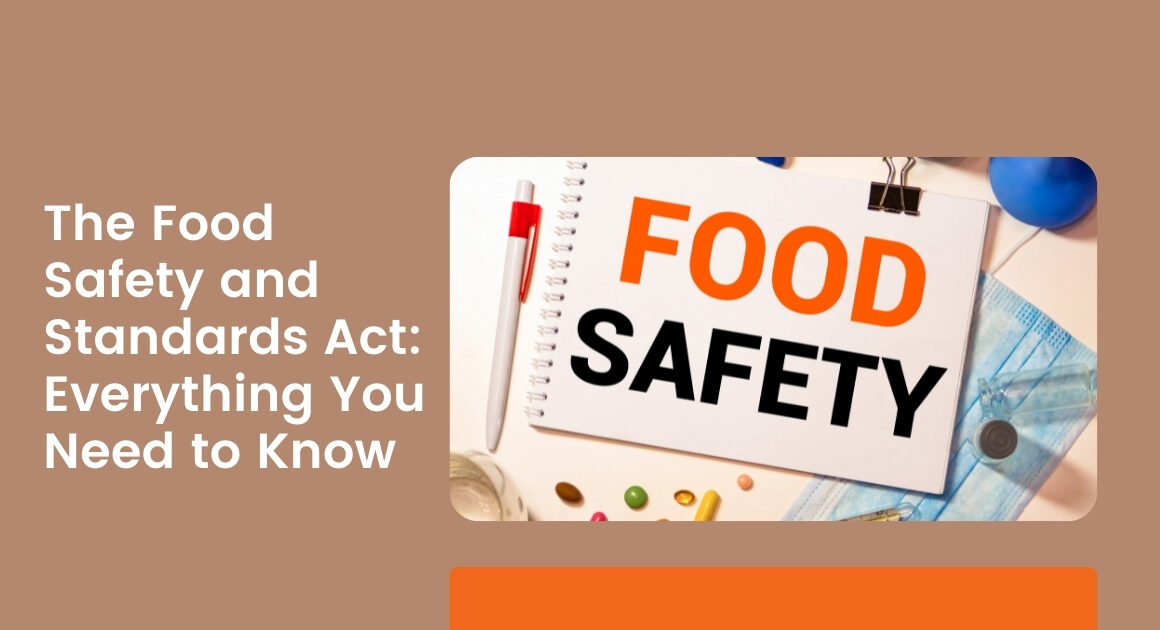Since the food business became one of the most in-demand sectors of the economy, food adulteration and the mixing of chemicals in food has been a major concern. As a result, it is important for the government to not only control but also check the food being supplied for food safety. On August 23, 2006, the government took action and approved the Food Safety and Standards Act. Prior to the establishment and implementation of the Food Safety and Standards Act, the government had numerous laws and regulations in place to oversee safe food practices.
Suggested read- fssai license online
The FSS Act and the FSSAI
The country’s food safety, food handling, and manufacturing processes have all been altered as a result of the new FSS law. The Food Safety and Standards Authority of India (FSSAI), a corporate body that develops standards for food articles and safe procedures for managing the food articles thus made and distributed, was also established under the FSS Act. The regulatory body, the Food Safety and Standards Authority of India (FSSAI), has created rules based on comprehensive scientific research to assist regulate the manufacture, storage, distribution, sale, and import-export of all sorts of food products available to the general public.
In a nutshell, the FSS is an Act that consolidates food laws and establishes the Food Safety and Standards Authority of India to establish science-based standards for food articles and regulate their manufacture, storage, distribution, sale, and import to ensure the availability of safe and wholesome food for human consumption.
FSSAI License:
The Food Safety and Standards Act gives the FSSAI the authority to issue FSSAI licenses for any food item. The FSSAI License is a 14-digit number that is engraved/printed on food products besides the FSSAI logo to assist reassure customers about the safety of the food they are receiving. Customers may also trust the FSSAI logo to ensure that the food is free of adulterants and other contaminants that could damage the meal’s quality.
If you wish to acquire this license, you need to go to one of the country’s best food experts.
Topics covered under the Food Safety and Standards Act
Preliminary – primarily outlines the Act’s introduction, what it stands for, and what definitions are associated with it, as well as proclaims that the Union is assuming control of the food business in the public interest. The FSS Act shall be applicable across India, according to this chapter.
The Food Safety and Standards Authority of India (FSSAI) was established to effectively execute the powers and carry out the responsibilities and functions given to it by the Food Safety and Standards Act. One of the FSSAI’s main responsibilities is to examine the food standards of all consumable goods and issue certifications.
It also explains the makeup of the food authority’s members as well as the hierarchical structure of the authority. A Chairperson and 22 other members will make up the FSSAI. Women must make up at least one-third of the 22 members. The chairperson serves a three-year term and is eligible for reappointment for another three-year term.
Furthermore, the FSSAI’s headquarters will be in New Delhi, India’s capital. Six other regional offices are responsible for the various zones that the act’s authority has been split into.
In terms of food safety, you have a special responsibility:
The Food Safety and Standards Act effectively lays out the obligations of people working in the food industry and how this translates into ensuring the delivery of safe food to customers. The FSS Act categorizes them into three groups. Following are a few examples:
- Operators of Food Businesses Are Liable Manufacturers, packers, wholesalers, distributors, and sellers are all part of the supply chain.
- Recall Procedures for Food
Principles of Food Safety in General:
The objective of the legislation and the body that monitors it, the Food Safety and Standards Authority of India (FSSAI), is to ensure food safety. The basic food safety principles mentioned in the Fssai registration are as follows.
Strive for an appropriate degree of human life and health protection, as well as consumer interests protection, including fair, practices in all forms of food commerce with regard to food safety standards and procedures.
Provisional risk management measures for appropriate safety should be implemented until concrete scientific evidence and proper risk assessment are obtained in specific cases where the possibility of adverse health effects has been detected based on an assessment of available information but scientific uncertainty persists.
If any food in a batch, lot, or consignment of food of the same class or description fails to satisfy food safety criteria, it is assumed that all of the food in that batch, lot, or consignment fails to meet those requirements unless the opposite is demonstrated.
